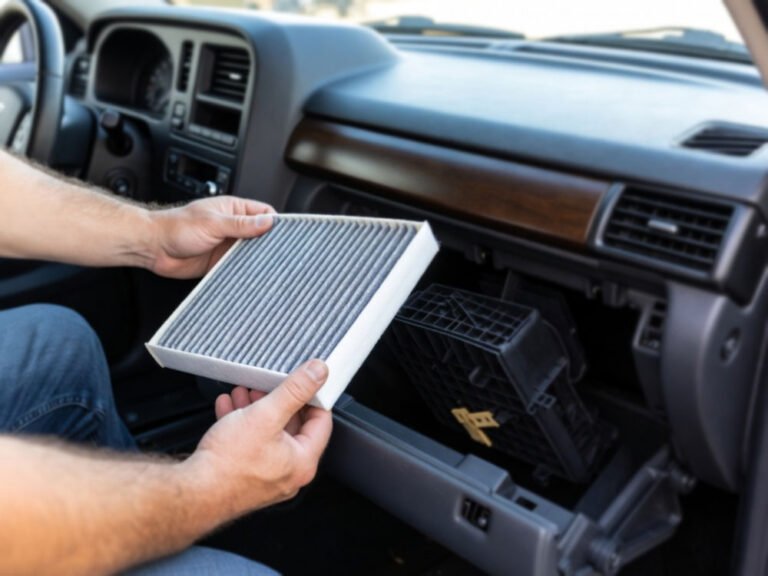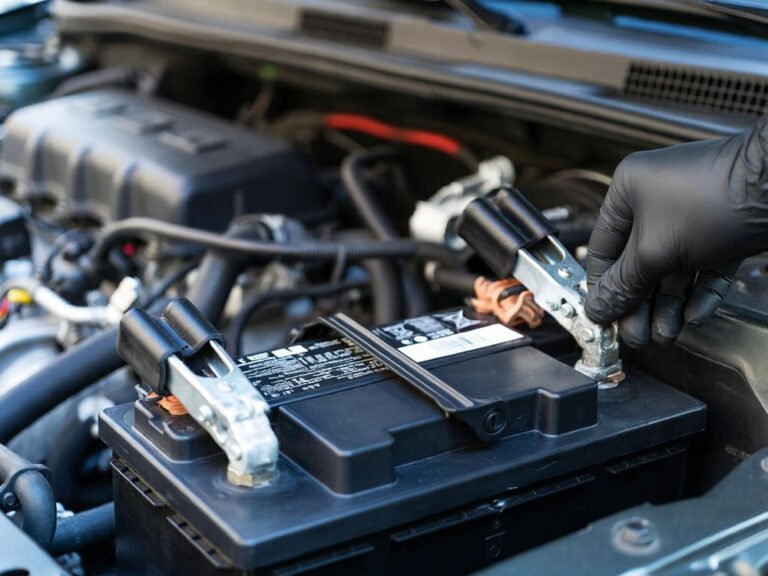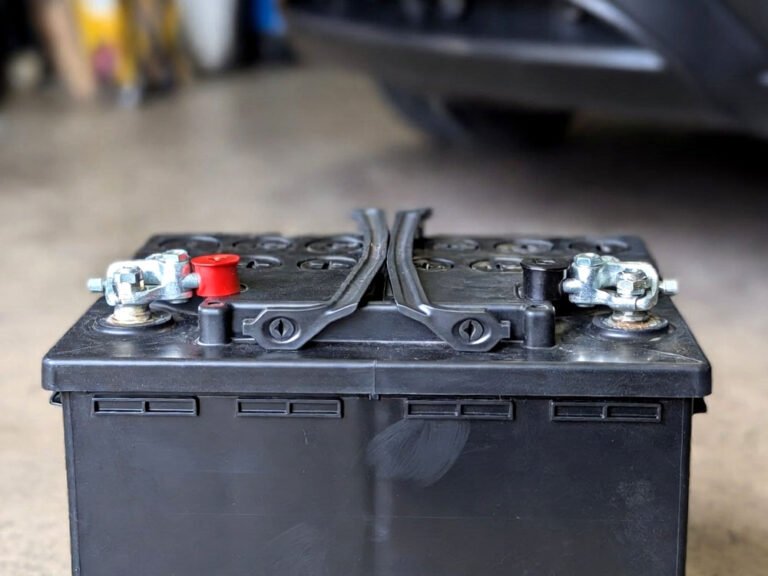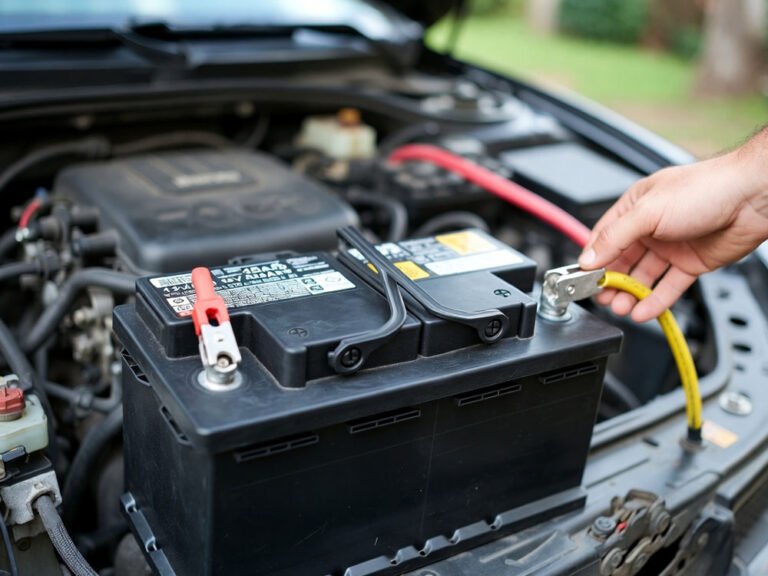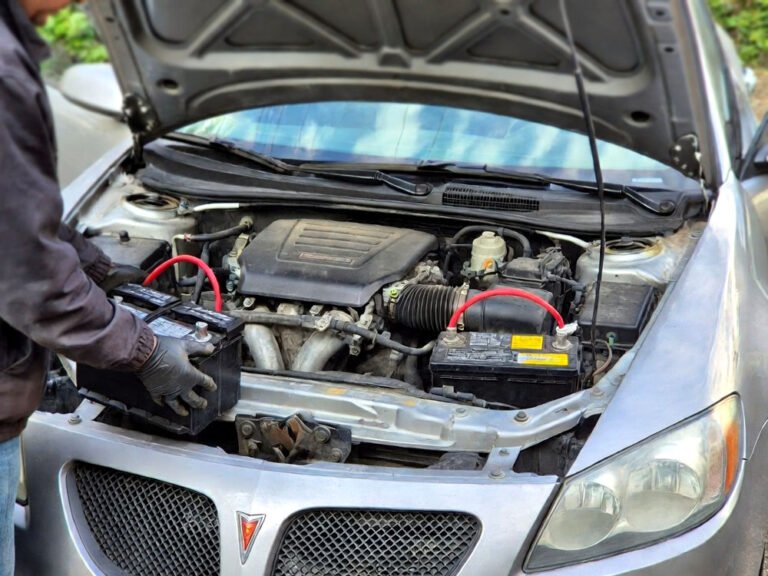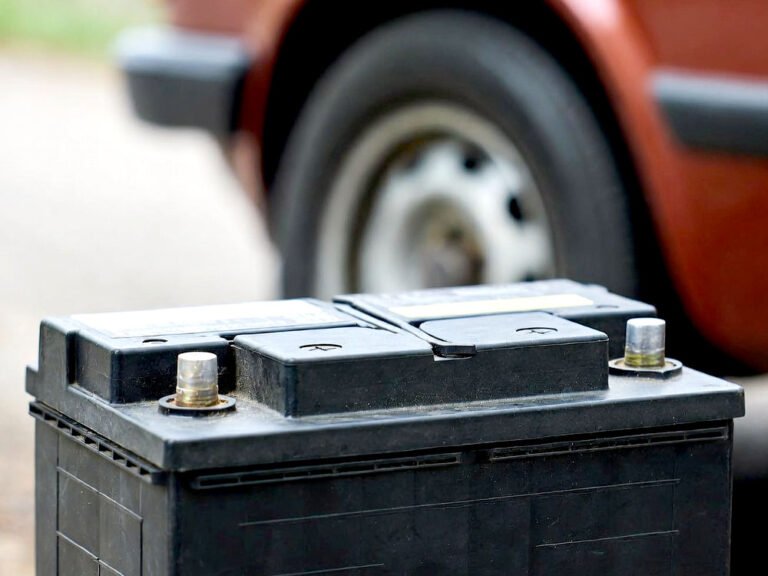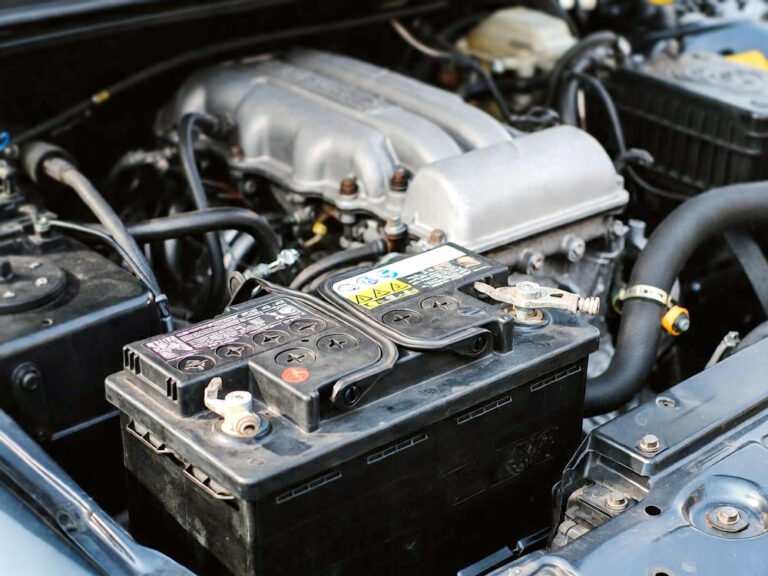To get rid of fish smell in your car, you can use white vinegar or baking soda. These odor absorbers are effective in neutralizing the fishy odor, leaving your car smelling fresh and clean again.
Having a lingering fish smell in your car can be quite unpleasant. Whether it’s from a recent fishing trip or leftover seafood takeout, the strong odor can be challenging to eliminate. Luckily, there are easy and inexpensive ways to get rid of the fishy smell in your car.
By using common household items like white vinegar or baking soda, you can effectively neutralize the odor and restore a pleasant scent to your vehicle. We will explore these simple and effective methods for removing fish smell from your car, allowing you to enjoy a clean and fresh driving experience once again.

Credit: www.amazon.com
Prevention And Immediate Actions
When it comes to a fishy smell in your car, prevention and immediate actions are crucial in order to eliminate the odor effectively. By avoiding spills and leakage, as well as quickly removing any fish residue, you can ensure your car stays fresh and odor-free.
Avoiding Spills And Leakage
Preventing spills and leakage is the first line of defense against a fishy smell in your car. Follow these simple steps to keep your car clean and fresh:
- When transporting fish, make sure it is properly wrapped and sealed in leak-proof containers or bags to prevent any accidental spills or leakage.
- Place the fish container or bag in a secure spot in your car, ideally in the trunk, to minimize the risk of it tipping over or spilling during the journey.
- If carrying fish in the passenger area, consider using a leak-proof liner or plastic sheet to protect the seats and floor from potential spills.
- Avoid placing fish containers directly on fabric surfaces. Instead, use a cooler or insulated bag to keep them secure and prevent any potential leakage.
- Ensure the lids of the fish containers are tightly sealed to prevent any odor from escaping.
Quickly Removing Any Fish Residue
If you do happen to experience any fish spills or leakage, it is essential to act quickly to minimize the impact and prevent the smell from lingering. Follow these immediate actions:
- As soon as you notice a fishy smell, stop the car in a safe location and assess the situation.
- Remove any visible fish residue or spills using disposable gloves or paper towels, taking care to avoid spreading the smell further.
- If the fish residue has come into contact with fabric surfaces, use a fabric cleaner specifically designed for removing organic odors. Apply the cleaner according to the manufacturer’s instructions and blot the area gently until the odor is eliminated.
- For hard surfaces, such as plastic or glass, use a mixture of mild detergent and water to wipe away any fish residue. Rinse the surface thoroughly and dry it completely to remove any lingering smell.
- To neutralize any remaining odor, place odor absorbers, such as activated charcoal or baking soda, in your car. These natural substances can help absorb and eliminate the fishy smell.
By being proactive in avoiding spills and leakage while promptly addressing any fish residue, you can keep your car smelling fresh, ensuring a pleasant driving experience for you and your passengers.

Credit: gearjunkie.com
Deep Cleaning Techniques
In order to effectively remove the stubborn fish smell from your car, it’s important to go beyond surface cleaning and employ some deep cleaning techniques. These methods are specifically designed to tackle the odor at its source, ensuring that your car smells fresh and clean. Here are some effective deep cleaning techniques:
Vinegar And Baking Soda
Combining vinegar and baking soda creates a powerful cleaning solution that can help eliminate fish odors in your car. To use this method, you’ll need:
- Vinegar – 1 cup
- Baking soda – 1 cup
- Warm water – 1 gallon
- Spray bottle
Step-by-step method:
- Mix the vinegar and baking soda in the spray bottle.
- Add warm water to the spray bottle and shake well.
- Spray the solution onto the affected area of your car upholstery.
- Leave it on for 10-15 minutes to allow the solution to penetrate and neutralize the odor.
- Blot the area with a clean cloth to remove excess moisture.
- Let the upholstery air dry completely.
Coffee Grounds
If you have some coffee grounds lying around, they can be surprisingly effective in absorbing unpleasant odors, including fish smells. Here’s how to use coffee grounds to get rid of the fishy odor in your car:
- Coffee grounds
- Bowl or sachet
Step-by-step method:
- Place the coffee grounds in a bowl or sachet.
- Put the bowl/sachet in your car, preferably near the affected area.
- Leave it overnight or for a few days to allow the coffee grounds to absorb the fish odor.
- Remove the bowl/sachet and discard the used coffee grounds.
Charcoal Bags
Charcoal is another excellent odor absorber, and charcoal bags can effectively eliminate fishy smells from your car. To use charcoal bags for removing fish odor, follow these steps:
- Charcoal bag
Step-by-step method:
- Place the charcoal bag in your car, focusing on areas with strong fish smells.
- Leave it in your car for a few days to allow the charcoal to absorb the odor.
- Regularly check and replace the charcoal bag as needed.
Citrus-based Cleaners
Citrus-based cleaners are not only effective at removing grease and grime but also work wonders in eliminating fish odors. To use citrus-based cleaners to get rid of the fishy smell in your car, follow these steps:
- Citrus-based cleaner spray
- Microfiber cloth
Step-by-step method:
- Spray the citrus-based cleaner onto the affected area.
- Gently scrub the area with a microfiber cloth to remove any residue and odor.
- Wipe away the cleaner and moisture with a clean cloth.
- Allow the area to air dry.
Enzyme Cleaners
Enzyme cleaners are designed to break down organic matter, making them effective in eliminating fish odors. To use enzyme cleaners for removing fish smell from your car, follow these steps:
- Enzyme cleaner
- Clean cloth
Step-by-step method:
- Apply the enzyme cleaner directly onto the affected area.
- Gently rub the area with a clean cloth to help the enzyme cleaner penetrate the upholstery.
- Let it sit for the recommended time specified on the cleaner’s instructions.
- Blot the area with a clean cloth to remove excess moisture.
- Allow the upholstery to air dry completely.
Activated Carbon Filters
Activated carbon filters can help purify the air in your car and effectively absorb fish odors. Here’s how to use activated carbon filters:
- Activated carbon filter
Step-by-step method:
- Place the activated carbon filter in your car, preferably near the affected area.
- Leave it in your car for several hours or overnight to allow it to absorb the fish smell.
- Regularly replace the activated carbon filter to maintain optimal odor absorption.
Professional Services
When it comes to eliminating the stubborn fish smell from your car, sometimes do-it-yourself methods may not be effective. In such cases, it is wise to consider professional help. Experienced car odor removal services have the expertise, equipment, and products necessary to tackle even the most challenging odors. They understand the nuances of different car materials and know-how to neutralize the fishy odor without damaging the interior.
When To Consider Professional Help
If you have tried multiple methods to eliminate the fish smell from your car but haven’t been successful, it’s time to consider professional car odor removal services. They can be particularly beneficial in the following situations:
- Extreme fish odor: If the fish smell in your car is overpowering and doesn’t go away despite your efforts, professionals can provide specialized treatment to eliminate the odor completely.
- Time constraints: If you don’t have enough time to spend on DIY methods or want a quick and efficient solution, professional services are the way to go. They have the resources to resolve the odor issue promptly.
- Persistent odor: Sometimes, the fishy smell may seem to disappear temporarily but resurfaces after a few days. This indicates that the smell is deeply embedded in the car’s fabrics or ventilation system. Professional car odor removal services can tackle the issue at its source, ensuring a long-lasting and odor-free environment.
- Health concerns: Lingering fish odor can cause allergies and respiratory problems for some individuals. If you or your passengers are experiencing any health issues due to the odor, seeking professional help is essential to ensure a safe and healthy car environment.
Finding Reliable Car Odor Removal Services
When searching for reliable car odor removal services, keep the following factors in mind:
- Experience and expertise: Look for professionals with extensive experience in odor removal specifically from cars. Check customer reviews and testimonials to ensure their expertise in tackling fishy smells.
- Methods and products: Inquire about the techniques and products the service providers use. Opt for those who use environmentally friendly and non-toxic solutions to ensure the safety of your car and the environment.
- Certifications and licenses: Choose services that have proper certifications and licenses. This ensures that they follow industry standards and regulations, providing you with quality and reliable odor removal services.
- Cost and warranty: Request quotes from multiple service providers and compare their prices. Additionally, inquire about any warranties or guarantees they offer on their services to ensure satisfaction and thorough odor elimination.
By considering these factors and choosing a reputable car odor removal service, you can get rid of the frustrating fish smell in your car and enjoy a fresh and pleasant driving experience once again.
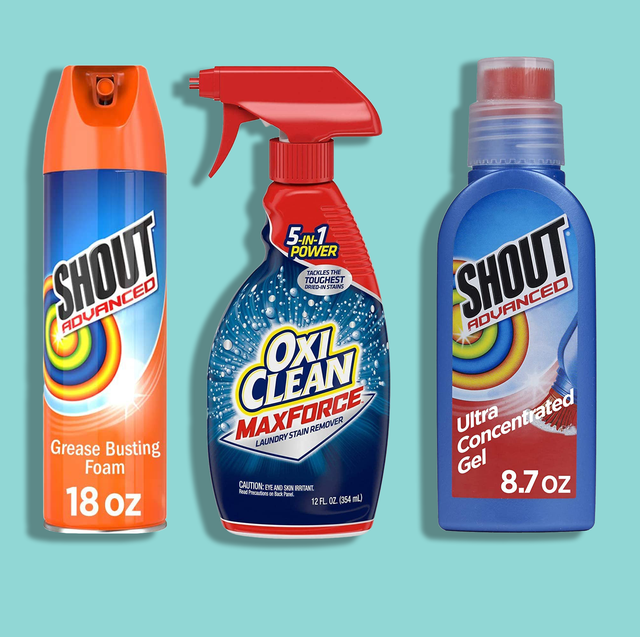
Credit: www.goodhousekeeping.com
Preventing Future Odors
After successfully removing the fish smell from your car, it’s essential to implement preventive measures to ensure that the unpleasant odor doesn’t make a comeback in the future. By following these simple steps, you can keep your car smelling fresh and fish-free for longer periods.
Regular Cleaning And Maintenance
Regular cleaning and maintenance is the key to preventing fish smells from lingering in your car. Here are some tips to help you maintain a clean and odor-free vehicle:
- Wipe down surfaces regularly using a mild cleaning solution or a car-specific interior cleaner to remove any fish residue or spills.
- Vacuum the carpets and upholstery to eliminate any trapped particles or debris that might contribute to odors.
- Pay attention to areas where fish might have come into contact, such as floor mats, crevices, and seat pockets, and clean them thoroughly with a brush or a specialized cleaner.
- Consider using seat covers or protective mats to prevent fish smells from permeating your car’s interior.
Using Air Fresheners And Odor Absorbers
Air fresheners and odor absorbers can be effective tools in combating and preventing unwanted smells in your car. Here are some options you can try:
- Traditional air fresheners: Opt for scented air fresheners designed specifically for cars. Hang them from your rearview mirror or place them in discreet locations within your vehicle.
- Charcoal bags: Place activated charcoal bags in your car to absorb and neutralize odors. These bags are reusable and work well for long-term odor control.
- Baking soda: Sprinkle baking soda on your car’s carpets and upholstery, let it sit for a few hours, and then vacuum it up. Baking soda is known for its odor-absorbing properties.
- Natural remedies: Essential oils such as lavender, lemon, or peppermint can not only mask odors but also provide a refreshing fragrance.
By regularly cleaning your car and utilizing air fresheners or odor absorbers, you can significantly reduce the chances of fish smells returning and keep your car smelling fresh and pleasant for your future journeys.
Conclusion
Removing fish smell from your car can be a challenging task, but these simple methods can help you tackle the problem effectively. From using baking soda and vinegar to utilizing coffee grounds and citrus peels, there are multiple natural remedies that can neutralize the persistent odor.
By following these tips, you can say goodbye to the fishy smell and enjoy a fresh-smelling car once again.


